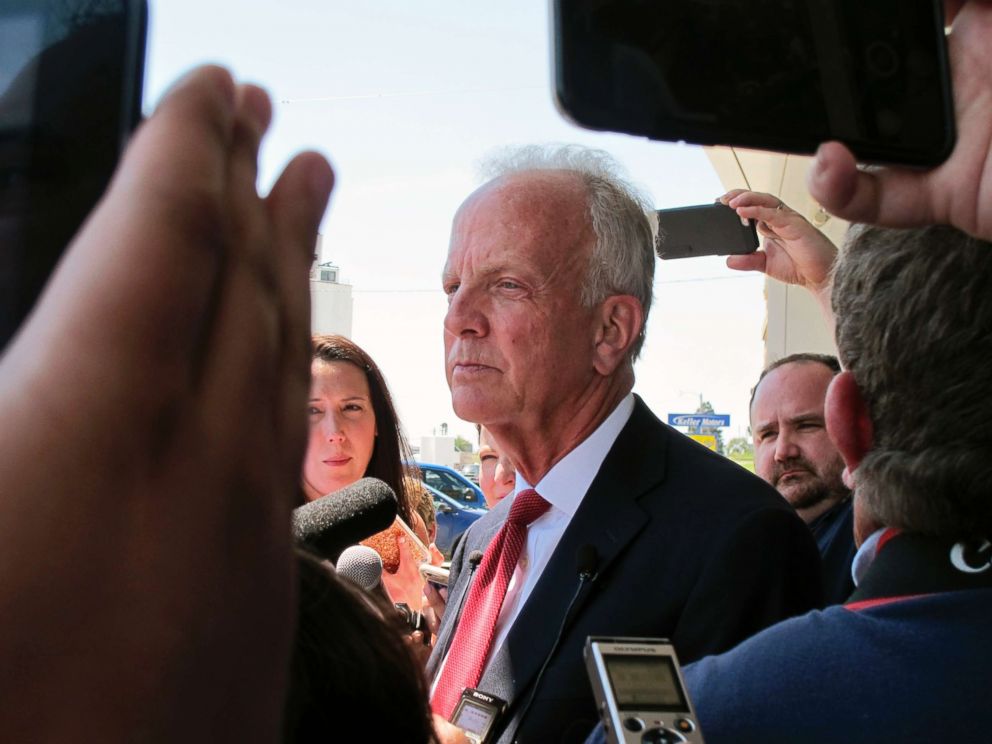Senate Republicans return to DC with no clear path for health care bill
The state of play for GOP health care reform after the July 4 recess.
— -- Senate Republicans head back to Washington today after a week of getting an earful from constituents — attending town halls or camping out at congressional district offices — who are upset about the GOP health care bill.
GOP senators' public stance is that they'll keep plugging away at a comprehensive bill to repeal and replace the Affordable Care Act, known as Obamacare.
But developments during the just-ended recess didn't make it any easier for them to reach that goal.
One additional Senate Republican — the usually reliably conservative John Hoeven of North Dakota — came out against the bill during the recess.
Meanwhile, GOP senators who already declared their opposition to the legislation, like Sens. Susan Collins of Maine and Jerry Moran of Kansas, were cheered by their constituents. Even Sen. Mitch McConnell acknowledged a plan B: working with Democrats on less comprehensive legislation to reassure the insurance industry.

"If my side is unable to agree on an adequate replacement ... then some kind of action with regard to private health insurance markets must occur," McConnell said at a Rotary Club meeting in Glasgow, Kentucky.
Senators have already acknowledged that they're probably not going to vote on anything this week.
"My sense is the week of the 17th is when we start moving on it," Sen. Marco Rubio, R-Fla., told Politico on Wednesday.
But as of today, Republicans have just 15 available workdays to pass a bill before Congress has its August recess and momentum slows. Legislators also have to pass a 2018 budget resolution and raise the debt ceiling before the fiscal year ends on Sept. 30.
Now that Republicans are on their way back to Washington and the clock is ticking, what's the state of play?
For starters, GOP Senate leaders are trying to get conservatives like Kentucky's Rand Paul and Utah's Mike Lee on board by seriously floating a proposed amendment by Texas' Ted Cruz that would allow insurers to offer bare-bones policies that don't offer essential health benefits such as maternity care or mental health services, as long as the insurance companies also offer at least one plan compliant with the Affordable Care Act.
Cruz defended his proposal on ABC News' "This Week" on Sunday by arguing it would simply "add new options" for consumers, although he also acknowledged it would lead to "some market segmentation."
According to GOP officials, the Congressional Budget Office is working on scoring a version of the Senate Republican bill that includes Cruz's proposal, which he calls a "consumer freedom" measure.
But if they add Cruz's amendment, Republicans' math problem would remain. Even if Cruz, Paul and Lee are appeased by including that amendment, the revised bill wouldn't satisfy moderate GOP senators who want to maintain Medicaid expansion. And with the amendment, the bill would risk losing the support of other moderates like Louisiana's Bill Cassidy.
Moran suggested that he would not support the Cruz amendment, saying during a Thursday town hall, "I'm very interested in making sure that pre-existing condition is covered, and I wouldn't consider it covered if it could be taken away in some other fashion."
And Chuck Grassley of Iowa said over the weekend that Cruz's plan could be "subterfuge to get around pre-existing conditions ... Obviously, I would object to that."
The one thing all senators agree on is the need to have more money in the bill for addressing the opioid addiction crisis. But that alone would not turn any of the 10 Republican solid "no" votes to "yes."
As they head back to the swamp of Washington, Senate Republicans face a perfect storm: no clear path for a bill, a short time to get it done and a full plate of other priorities to handle before the same deadline.




